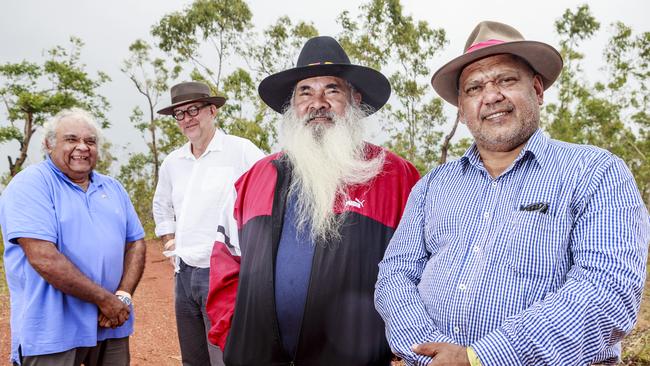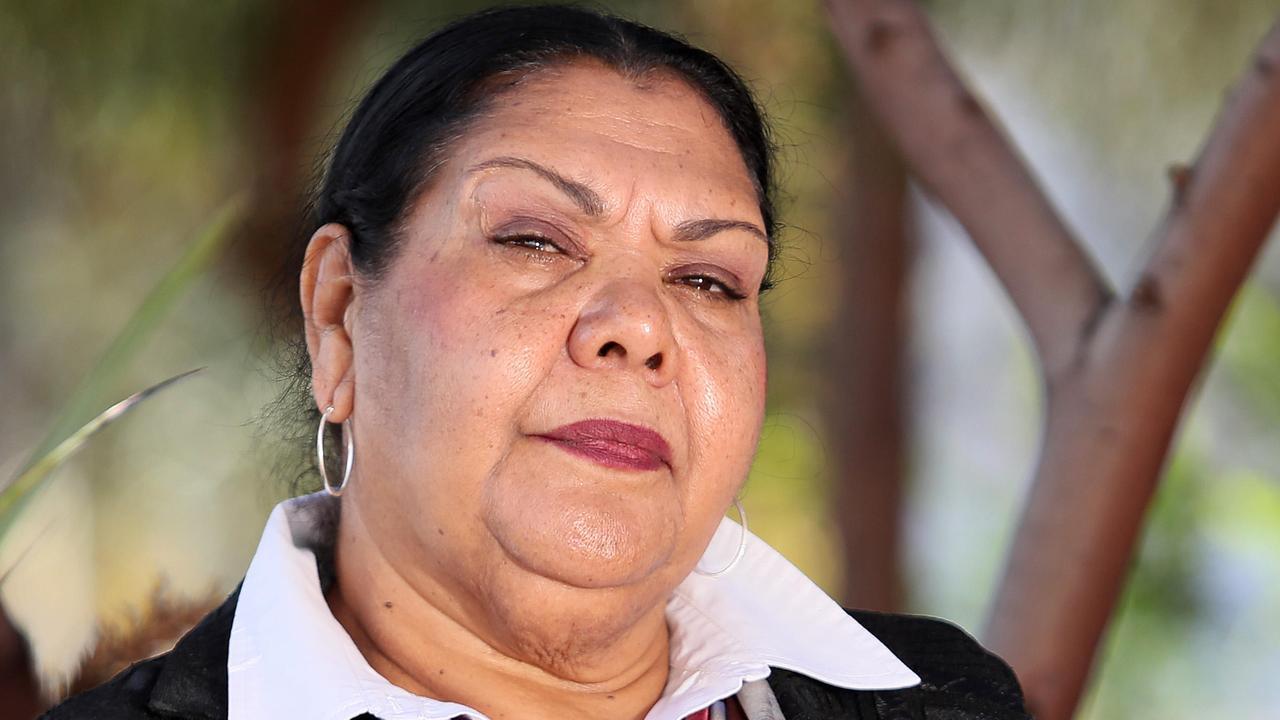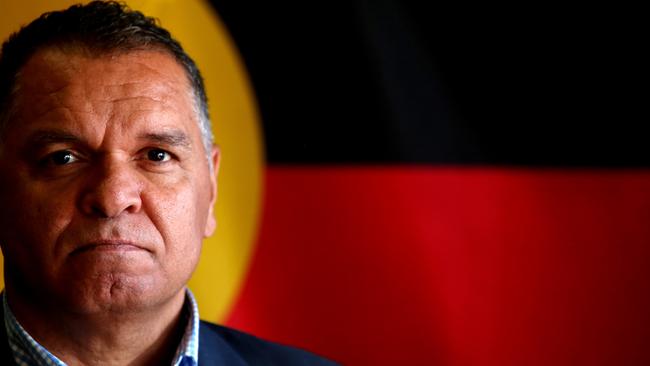Garma Festival: Elders urge change, reject ‘embroidery’
Noel Pearson and Patrick Dodson have united behind calls for substantive change to the main body of the Constitution.

Indigenous leaders Noel Pearson and Patrick Dodson have united behind calls for substantive change to the main body of Australia’s Constitution, with Mr Pearson warning that most indigenous Australians would reject mere “preambular embroidery”.
The pair, who are two of the country’s most respected Aboriginal figureheads, have joined to effectively push for a new or reformed head of powers for the benefit of indigenous peoples, and for the removal of outdated constitutional elements that are seen by many as racist.
Mr Dodson sees this as separate from questions about Aboriginal sovereignty or a treaty between Aboriginal and Torres Strait Islander people and the rest of the country.
Mr Pearson said he was open to inserting a new clause into the Constitution explicitly banning racial discrimination, if doing so helped find “a way through the forest’’.
He said he would be “guided by what indigenous Australia has to say” on racial discrimination.
“There’s got to be a substantive power position within the Constitution; it can’t just be some embroidery around a preamble or something like that,” Mr Pearson said.
“If there is consensus around anything that I’ve heard this weekend and I’ve heard in the lead-up to (the) Garma (Festival) here (in Arnhem Land), it’s that there’s no substantial constituency in indigenous Australia that would just agree on some kind of preambular embroidery.”
Both leaders are hopeful Tony Abbott will fund a further round of consultation to help indigenous Australians understand the various propositions under debate and reach a semi-unified view. That view would then be taken forward through a further series of town hall-style meetings with the rest of the country.
“We need indigenous Australians to get their head around this thing and to see if we can forge a consensus among our people so that, when we do go out and consult with the rest of Australia, we’ve got a very clear position,” Mr Pearson said.
“Whenever we’ve been united, we’ve been able to make strides forward.”
On Saturday, he and Mr Dodson held a campfire meeting with the Business Council of Australia to discuss how to proceed.
Chief executive partner of the Allens law firm Michael Rose, a BCA representative, said his organisation would support the push to develop a united front.
“My own sense is that we need to be careful to put forward something that reflect the wishes of the community for which it’s being put,” Mr Rose said. “We think there’s a good argument for removal of the race power.”
Mr Dodson said a successful referendum could inspire other changes, to reduce indigenous incarceration and juvenile detention, improve education, and encourage all Australians to value Aboriginal heritage.
“We have a great opportunity here. You can’t front-end load that with a set of words in the Constitution, but you can evolve and evoke out of the process the kind of momentum that can lead to those sorts of outcomes helping our political leadership form better ideological views when they come to formulate policies, and practice when they come to deal with us,” he said.
The comments come after The Weekend Australian revealed that Yolngu leader Galarrwuy Yunupingu believes that banning racial discrimination should be a prerequisite for negotiation about constitutional change, and that it is up to indigenous Australia to agree on a position.
At the Garma Festival this weekend, both Mr Pearson and Mr Dodson spoke about the booing of indigenous AFL star Adam Goodes.
Mr Pearson said attendant commentary had left him “consumed with rage”, and that he was questioning how well he knew his fellow Australians. Mr Dodson said outsiders travelling to Arnhem Land for Garma “may as well be going to Hawaii” if they weren’t prepared to countenance banning racist abuse.
He said he did not think debate surrounding the Goodes saga would damage the referendum push, but added that for a referendum to succeed, “you’d want to be able to see that the Australian people have also moved to understand that we inherit this country together”.
Mr Dodson said reaching agreement on a form of words to put to the people would be difficult before the Prime Minister’s preferred referendum date in 2017. “I think the process is going to drive the timeframe … I don’t think anyone in Australia would want to see something rushed and half-achieved,” he said.
Mr Pearson said the opportunity to “combine the practical and the symbolic” through constitutional change could deliver wider benefits.
“The constitution is only the top bit of the pyramid here, (but) it is a crucial bit of the structure,” he said. “That will be the measure of success, when we get white Australians to understand that this heritage is as much theirs as ours.”



To join the conversation, please log in. Don't have an account? Register
Join the conversation, you are commenting as Logout